Carrots Recalled Over E.Coli : What You Need To Know

On November 16, 2024, the U.S. Centers for Disease Control (CDC) issued a carrot recall due to an E.coli outbreak that has already claimed the life of at least one consumer. This outbreak was found across multiple brands of carrots in many different grocery stores around the country.
The affected carrots are linked to Grimmway Farms and were found in different varieties, including baby carrots and whole carrots. So far, there have been 39 cases, 15 hospitalizations and one death across 18 states that have been linked to the carrot recall.
Although recalled products have been pulled from most store shelves, they may still be in your home, so staying up-to-date with the 2024 carrot recall is crucial to keep yourself and your family healthy. To learn more about this recall, including the products and grocery store chains, keep reading for a detailed breakdown of the current situation.
Jump to Section
- Which Carrots Are Recalled?
- Why Are These Carrots Being Recalled?
- What To Do if You Have Carrots That Were Recalled
Which Carrots Are Recalled?
A carrot E.coli outbreak has swept across large grocery store chains. The organic carrots recalled were from Grimmway Farms and were sold under many different brand names. This carrot recall affected both baby carrots and whole carrots and as none were sold under the Grimmway Farms name, it's crucial to know the exact brands affected in case you still have them in your home.
Baby Carrots Recalled
According to the CDC recall notice, the use-by date for the baby carrots affected by the carrot recall ranged from September 11, 2024, to November 12, 2024.
The brands of baby organic carrots affected by the carrot E.coli outbreak are:
- 365 Whole Foods
- Bunny Luv
- Cal-Organic, Compliments
- Full Circle
- Good & Gather
- Green Wise
- Grimmway Farms
- Marketside
- Nature's Promise
- O-Organic
- President's Choice
- Raley's
- Simple Truth
- Sprouts
- Trader Joe's
- Wegmans
- Wholesome Pantry

Whole Carrots Recalled
The organic carrot recall also affected packages of whole organic carrots that were available for purchase approximately between August 14, 2024, and October 23, 2024. Unfortunately, it is common for whole organic carrots to be sold without use-by dates, so be vigilant if you purchased Grimmway Farms carrots from August onward.
The brands of whole carrots with E.coli that were part of the carrot recall are:
- 365
- Bunny Luv
- Cal-Organic
- Compliments
- Full Circle
- Good & Gather
- Green Wise
- Marketside
- Nature's Promise
- O-Organic
- President's Choice
- Simple Truth
- Trader Joe's
- Wegmans
- Wholesome Pantry
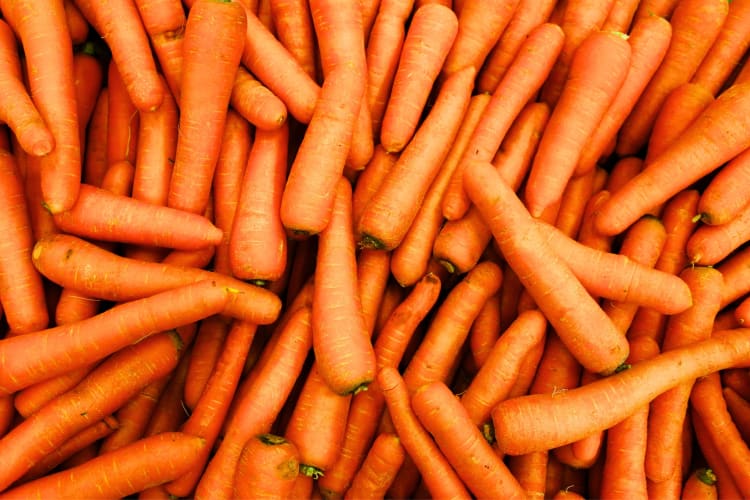
What Stores Sold the Recalled Carrots?
Many popular chains sold the bagged carrots affected by E.coli, including:
- Trader Joe’s
- Target
- Wegmans
- Sprouts
- Whole Foods
- Walmart
As Grimmway farms are major suppliers to almost all chain grocery stores, contamination is widespread. No matter where you have purchased carrots in the last few months, be sure to double-check the brand of carrots and toss them if they are affected by the carrot recall. Don’t forget to also check frozen carrots or any frozen meals you prepared using carrots between August and November.
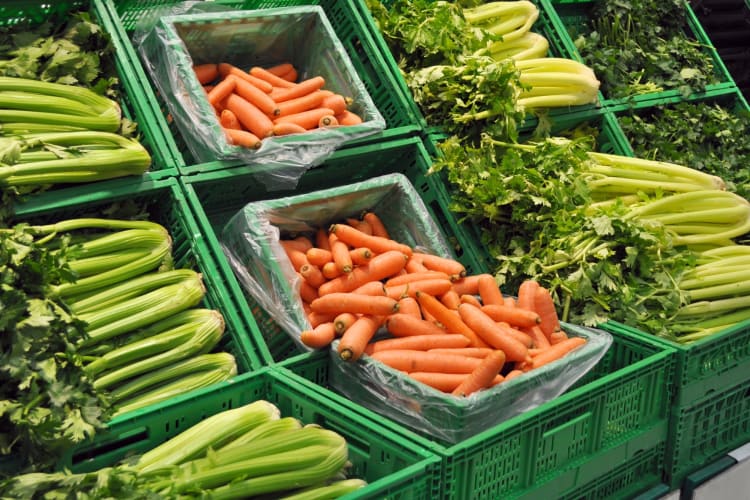
Why Are These Carrots Being Recalled?
The carrots are being recalled because they have been linked to an E.coli outbreak across multiple states. According to the Centers for Disease Control, there have been 39 reported cases of E.coli, 15 of which have resulted in hospitalization and at least one fatality.
The reported cases range across 18 U.S. states. The carrot recall is taking place to protect public health, ensuring people do not consume contaminated carrots.
After the carrot recall, the company responsible for the outbreak, Grimmway Farms made a public statement saying they were taking the outbreak seriously and have conducted a thorough review of day-to-day operations to ensure this will not happen again. They also said they are committed to providing customers with high-quality produce that adheres to rigorous safety standards.
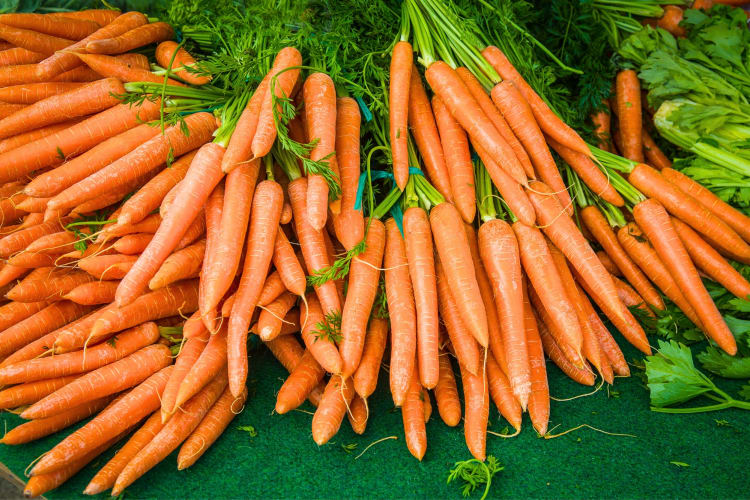
What Is E.coli ?
The strain of bacteria responsible for this deadly outbreak is E.coli O121:H19, which is a dangerous Shiga toxin-producing E.coli. The Shiga toxin is commonly found in fresh vegetables like romaine lettuce as well as meat products, such as beef and was connected to U.S.-wide ground beef recall in the last few years alone. This toxin is hazardous because it can penetrate cells and kill the cells resulting in tissue damage.
While some strains of E.coli are common and don’t always result in illness, this particular strain of E.coli is concerning for human health. This strain can even cause urinary tract infections, pneumonia, sepsis and serious kidney problems like hemolytic uremic syndrome. It is especially of concern for small children, the elderly and anyone with a weakened or otherwise compromised immune system.
E.coli can make its way into produce in a variety of ways. Cross-contamination with infected animal feces is a common contamination method. Another way E.coli finds its way into food is through improperly composted manure that is used to fertilize the plants in the fields. E.coli can also be spread through irrigation systems when contaminated water is used to water the crops which can then be absorbed into the plants. Research has shown that over half of all E.coli outbreaks have been linked to organic farms which means farming techniques may also contribute to contamination.
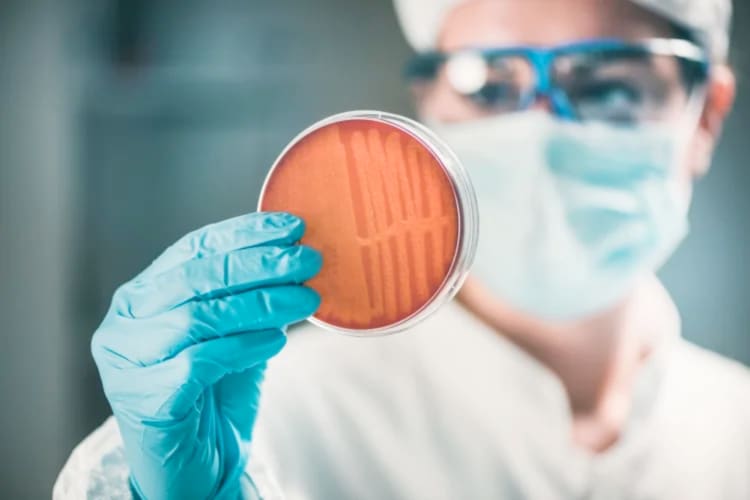
What Are the Symptoms of E.Coli?
The symptoms of E.coli can range in severity depending on many factors. Common symptoms include vomiting, diarrhea and stomach cramps. Unfortunately, these symptoms often mimic other illnesses like the stomach flu which may make seeking treatment more difficult. Symptoms of E.coli sickness generally start to manifest anywhere from three to four days after consuming contaminated food or beverages.
Young children, immunocompromised individuals and the elderly are usually more susceptible to more serious life-threatening infections from this bacteria. If you suspect you or a loved one has contracted E.coli seek treatment from a medical facility immediately.
How is E.coli Treated?
Many victims of the carrot recall had to seek treatment in a hospital. While most cases of E.coli resolve on their own after a few days of extreme sickness, other cases require special treatment at a hospital. Dehydration is a dangerous side effect that can be treated in a hospital with intravenous fluids in extreme cases.
Some signs you should seek medical treatment include severe stomach pains, high fever, little urine or common symptoms of dehydration, such as a dry mouth. E.coli is treated with rest, fluids and, in extreme cases, antibiotics to kill the bacteria.

What To Do if You Have Carrots That Were Recalled
If you purchased produce affected by the carrot recall, throw the carrots away and do not consume them. As mentioned, be sure to check for frozen carrots or dishes you’ve prepared and stored that used carrots and also dispose of those as the freezing process does not eliminate all traces of E.coli.
You should also thoroughly wash all surfaces that came in contact with the contaminated carrots with an anti-bacterial soap or a food-grade disinfectant. Scrubbing hard surfaces with warm water, dish soap and diluted bleach kills the E.coli bacteria.
If utensils, cups, plates and bowls were contaminated by the recalled carrots, wash the kitchenware in a sanitizing cycle in the dishwasher with the water on the highest heat setting. Using hydrogen peroxide when cleaning is another effective way to sanitize your kitchen and eliminate any traces of the E.Coli bacteria. After cleaning and disinfecting any surfaces that might have come in contact with the recalled carrots, be sure to thoroughly wash your hands.
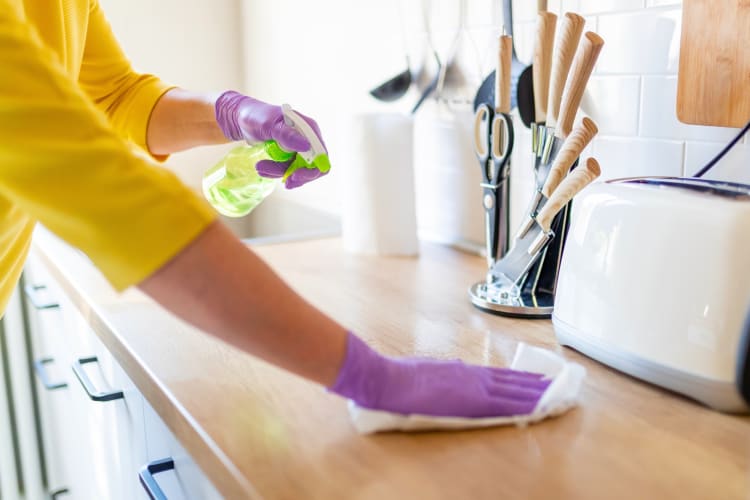
The carrot recall is a serious situation that is affecting many consumers across the country. To avoid consuming recalled carrots, check the dates on your organic carrots, including baby and whole carrots, and do not consume them if you think they are connected to the recall.
While the carrot recall is no longer affecting products on the shelves at grocery stores, it is imperative to check the carrots you have purchased before consuming them to avoid infection.
To stay up to date, check out other news and experiences happening on Cozymeal.



FOOD FOR THOUGHT?
Join the conversation.